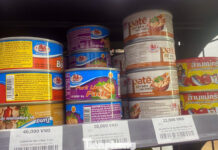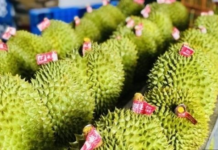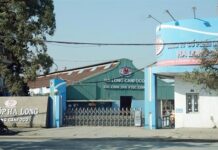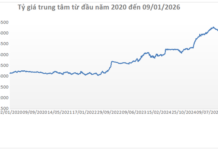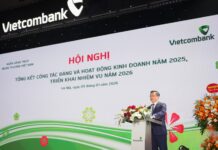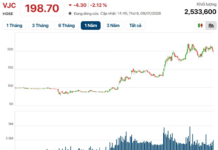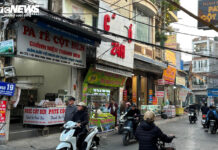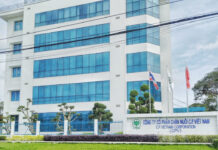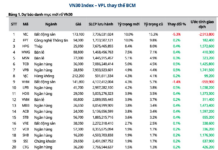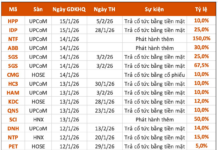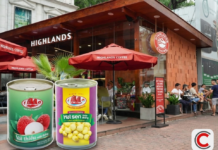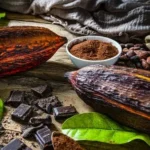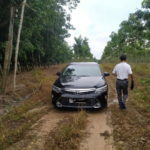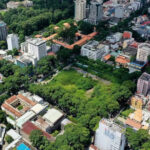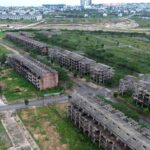After years of being “disillusioned” with coffee due to plummeting prices, in 2020, farmers in Lam Dong province raced to uproot their long-standing coffee trees and sold their land to real estate companies for subdivision and sale. At that time, Lam Dong was likened to a “tectonic shift,” astonishing the whole country as numerous coffee farms were wiped out to make way for “land-for-sale” signs.
However, just a few years later, the land market cooled down, prices dropped significantly, and there were hardly any buyers. Concurrently, coffee prices started to inch up.
From around 39,000 VND/kg in previous years, coffee prices soared to a record high of 130,000 VND/kg in early 2025. Even though prices have since adjusted to around 96,000 – 100,000 VND/kg, this is still a dream come true for coffee farmers. According to calculations, as long as the price stays above 30,000 VND/kg, farmers will make a profit.
Coffee regains its status as “black gold”
VTC News reporters visited Ward 2, Bao Loc (formerly Loc Tan commune, Bao Lam district) – one of Lam Dong’s key coffee-growing areas. While fertilizing his coffee trees laden with fruits, Mr. Dinh Tien Hoang couldn’t hide his excitement: “My family has nearly 2 hectares of coffee trees, and we harvested nearly 8 tons, earning 1 billion VND in the last crop.”
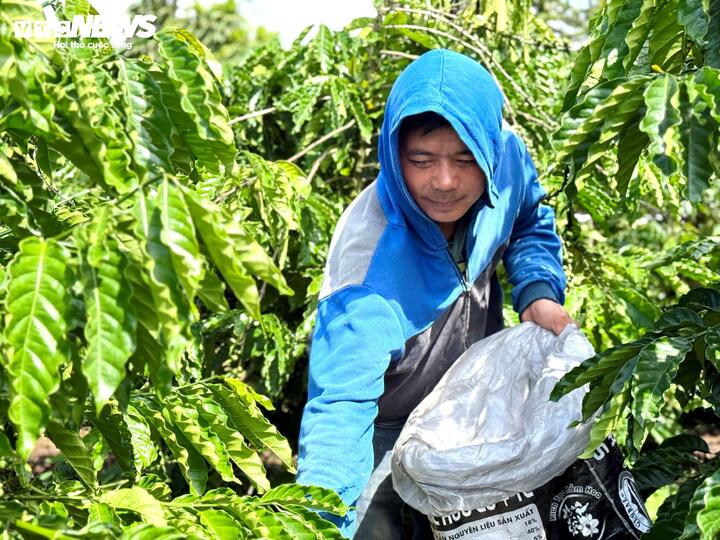
Mr. Dinh Tien Hoang tends to his coffee farm, which brought him a billion VND in the previous crop.
According to Mr. Hoang, 130,000 VND/kg is a record price he has never seen in his over 15 years of growing coffee. When asked, his parents and elders confirmed that such a price had never been seen in the locality.
For farmers like Mr. Hoang, coffee is an easy-to-grow crop that requires minimal care, unlike durian. Previously, farmers were not very enthusiastic about coffee because the price was only around 39,000 VND/kg, and although profitable, the returns were not substantial.
“Typically, 1 hectare yields 4 tons of coffee beans. With the price in the previous crop, we would have earned 500 million VND. After deducting about 110 million VND for fertilizer and pesticides, we would still make a profit of nearly 400 million VND per hectare. As long as the coffee price stays above 30,000 VND/kg, we won’t incur losses,” Mr. Hoang shared.
In Bao Lam 3 commune, Ms. Dinh Thi Yen was also delighted as her 1-hectare coffee farm brought her family a profit of nearly 400 million VND.
“We are farmers, and our family has been growing coffee on this land for generations. Previously, 1 hectare would yield about 170 million VND. After deducting the cost of fertilizer and pesticides and taking into account our labor, we could still save about 50 million VND. It wasn’t a huge sum, but it provided us with a stable additional income over the years,” Ms. Yen recounted.
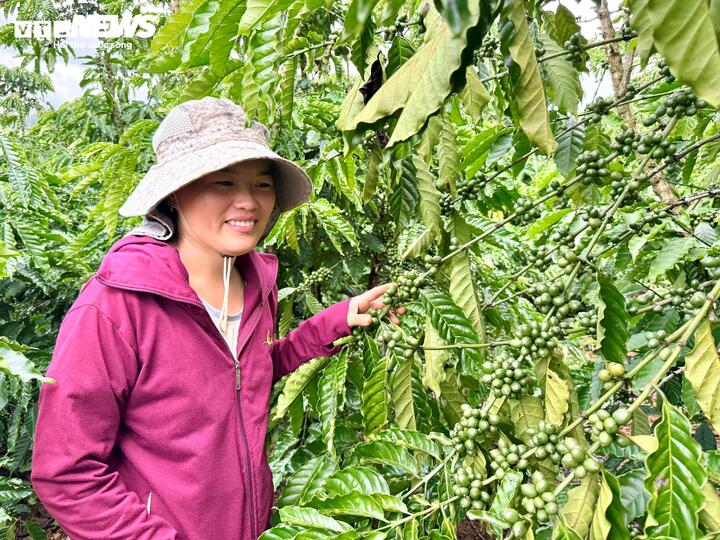
Ms. Dinh Thi Yen and her husband decided to save money to expand their coffee farm.
Ms. Yen also shared that previously, many neighbors sold their farms to real estate companies for land subdivision and sale. While land prices were high at that time, many people became rich too quickly and lost their traditional livelihood. Now, having spent all their money, they want to buy back the land but find it challenging. As for Ms. Yen, she and her husband are saving money from the previous crop to expand their coffee-growing area.
Besides farmers who made the right decision to sell at the peak price of 130,000 VND/kg, many in Lam Dong are currently stockpiling coffee beans, waiting for prices to rise again.
Ms. Phan Thao, who is storing 5 tons of coffee from the previous season, shared: “When we finished harvesting, the price was 120,000 VND/kg, a decrease of 10,000 VND/kg from a few days earlier. So, we decided to stockpile and wait for the price to go up again. However, the price dropped to 86,000 VND/kg, and it has now risen to 96,000 VND/kg. Although the price has fluctuated, we are not worried because we believe it will go up again.”
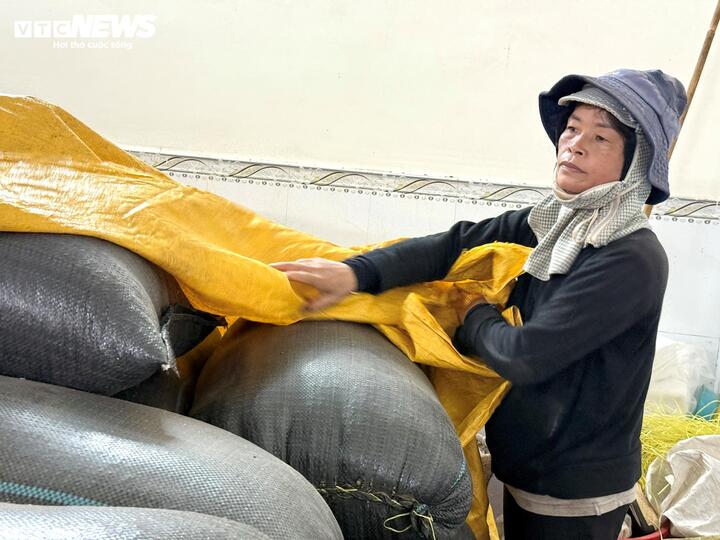
Ms. Phan Thao with her 5-ton stockpile of coffee beans from the previous season.
According to statistics from the General Department of Customs, in the first six months of 2025, Vietnam exported nearly 1 million tons of coffee, earning over 5.4 billion USD, a significant increase compared to the same period last year. The average export price reached a record high of 5,708 USD/ton.
Land regains its warmth thanks to coffee
According to locals, many who sold their land earlier now regret their decision as they see the soaring coffee prices. They are returning to rent land for coffee farming or saving money to buy back agricultural land.
It’s not just local farmers who are returning to coffee; a wave of investors is also heading towards the red basalt soil region. The real estate market is starting to heat up after a long period of stagnation. While transactions have not exploded, the number of customers viewing land has increased significantly. And unlike previous phases, when only scenic land, land near streams, or land for building villas was sought after, many customers are now actively looking to buy existing coffee farms.
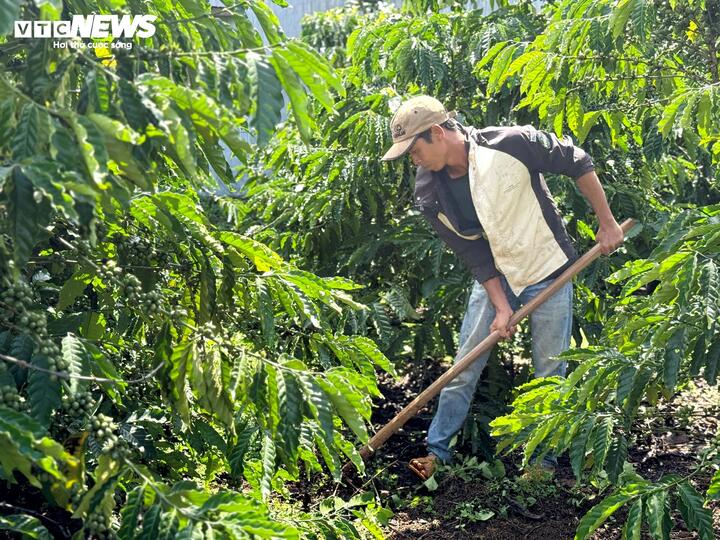
Land regains its warmth thanks to coffee.
Ms. Nguyen Hong Trang from Ho Chi Minh City, a customer looking to buy 1 hectare of farmland in Bao Lam, shared: “I’m not an investor; I just want to buy a piece of land for retirement. But leaving the land idle is a waste, so I plan to grow coffee to have some income and effectively maintain the land.”
According to our observations, many customers who finalized land purchases immediately handed over the land to locals for coffee farming. Some pay a fixed sum for each crop, while others share a percentage of the yield, and both parties are satisfied. As a result, long-term land rental for coffee farming is becoming popular again.
Even real estate businesses are not immune to the “black gold” fever. Previously, to keep the land from being abandoned, they often supported customers in growing short-term crops like vegetables, passionfruit, or melons. Now, many companies have started offering coffee farming services to their clients.
Some companies advertise: “Buy land with a ready-to-farm coffee plantation, with a team providing full farming and harvesting services.”
Mr. N.V.L, a land broker in Bao Loc, shared that since the beginning of July 2025, the local land market has witnessed significant changes.
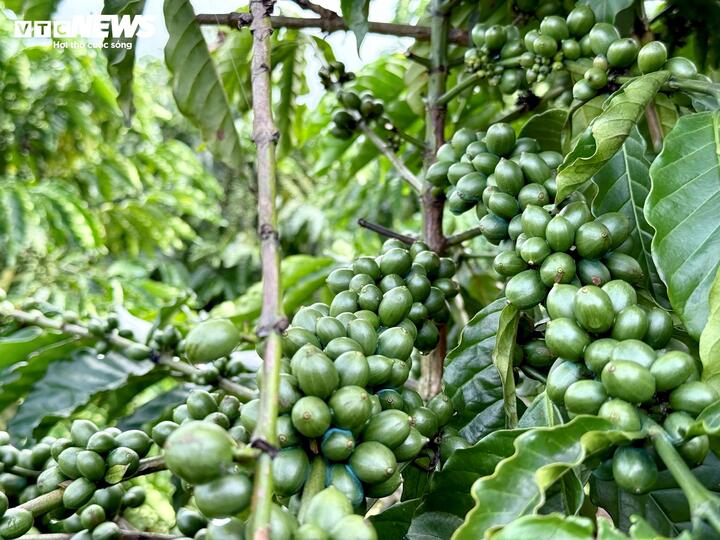
According to locals, coffee is an easy-to-grow crop with minimal care requirements.
“Land prices have increased significantly, and there are more customers than in previous years. There are several reasonable factors for the price increase: the upcoming construction of a highway, the merger of localities, the upcoming application of a new land price framework (fear of higher prices and soaring land-use conversion fees), and, last but not least, the surge in coffee prices,” Mr. L. explained.
Mr. L. further analyzed that, at present, buying land in Bao Loc for speculation or actual use is equally reasonable. If buying for speculation, the current situation provides a solid basis for short-term price increases. For customers buying land for future use or retirement, coffee farming is a perfect temporary solution.
However, according to the local agricultural sector, expanding coffee-growing areas should be accompanied by varietal replacement, investment in technology, and avoiding indiscriminate expansion driven by trends.
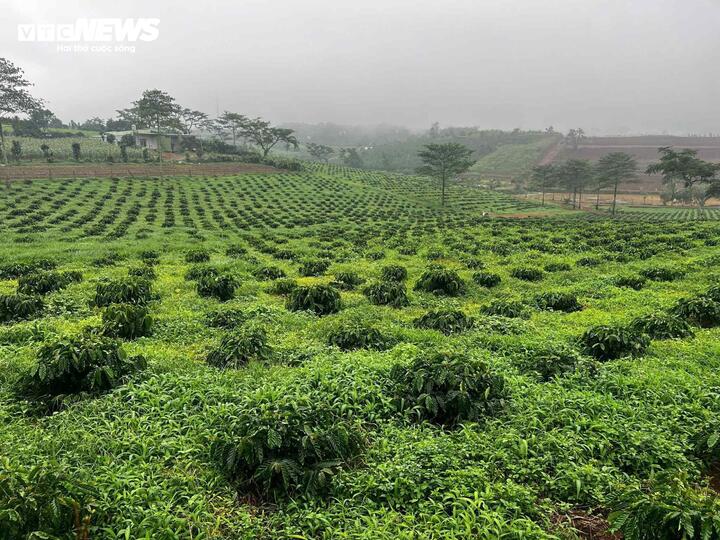
A coffee farm with the promise of high yields in the upcoming season.
“We encourage people to expand coffee-growing areas only in suitable and planned areas. Priority should be given to high-yield and disease-resistant coffee varieties. While the high prices are a positive sign, we should not be too hasty. For coffee to be sustainable, we must consider the entire value chain, from farming to processing and exporting,” a Lam Dong leader emphasized.
According to this leader, the Western Highlands provinces are promoting the development of EUDR-standard raw material areas to export coffee to the European market. This is an essential step to ensure that Vietnamese coffee not only increases in price in the short term but also maintains its position in the global market in the long run.
The Perfect Brew: Unveiling the Secrets of Vietnam’s Robust Coffee Industry
Today, coffee prices have settled at around 120,000 VND per kg, a decline from last week’s London coffee market rates.
The Perfect Brew: Elevating Vietnamese Coffee for the Global Palate
The export of coffee, predominantly in the form of roasted and ground as well as instant coffee, is experiencing tremendous growth in both volume and value.

